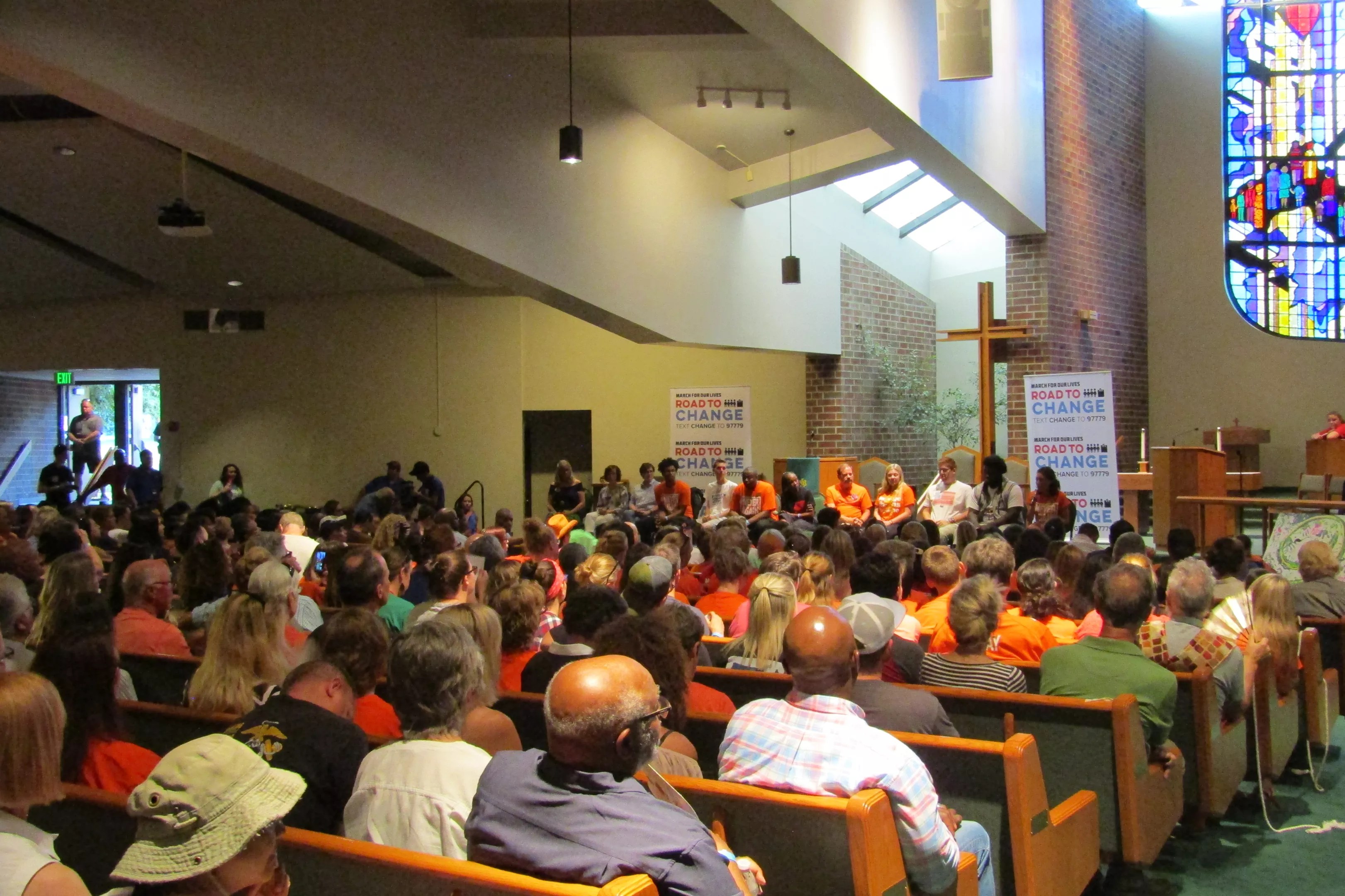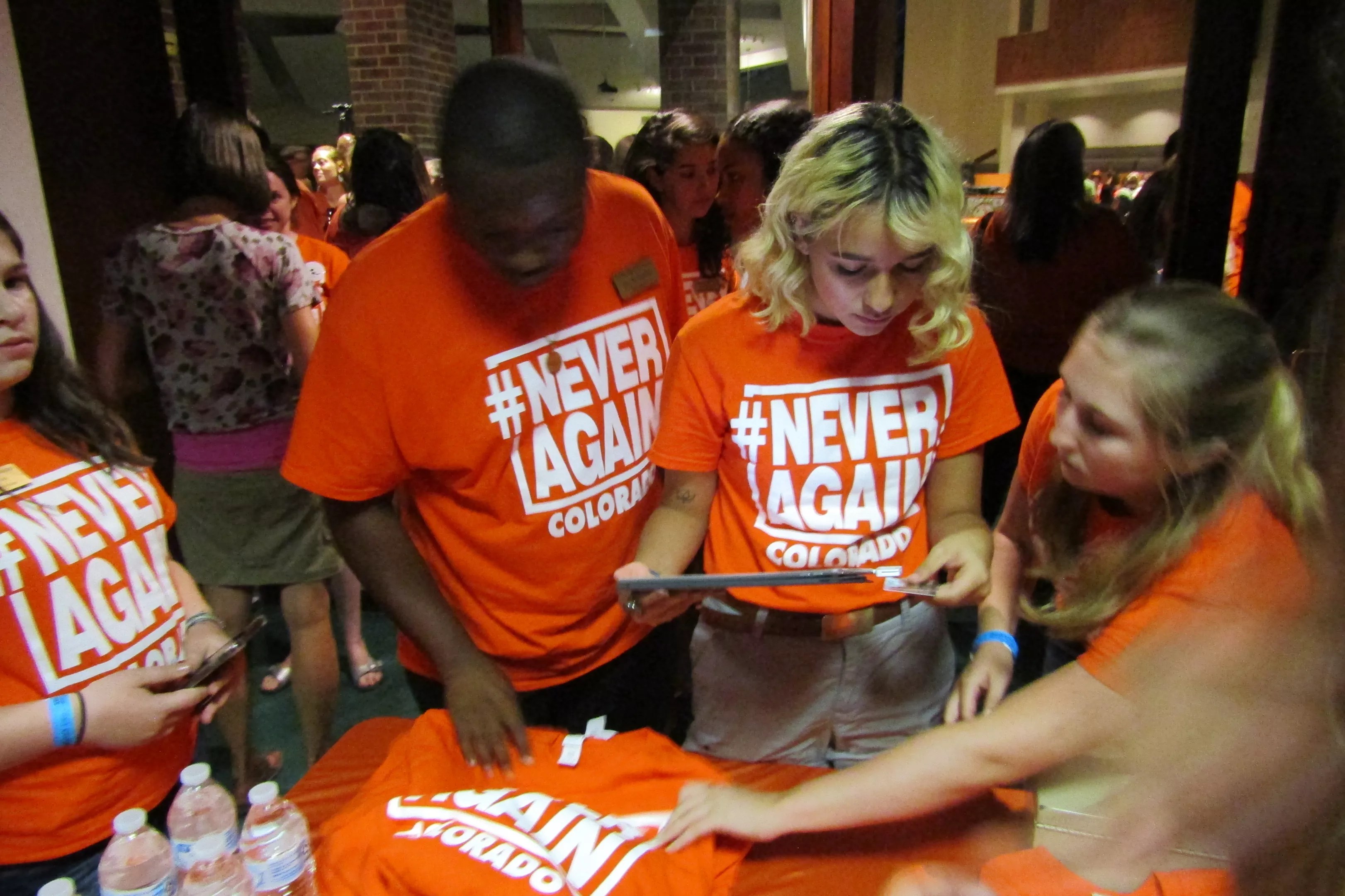
Sara Fleming

Audio By Carbonatix
Colorado sometimes feels like ground zero for gun violence. First came Columbine; thirteen years later, it was the Century 16 theater shooting. But while these and other national tragedies still make headlines, what’s missing from the news are the single deaths caused by gunfire in so many American neighborhoods, including those of east Denver.
On July 13, activists fighting to stop gun violence gathered at Shorter AME Community Church for a town hall, one stop among many on the Road to Change/March for Our Lives nationwide tour. While focusing on the horrific school shootings that happen all too often across the country, the panel also spoke about the disproportionate amount of gun violence that people of color face, and said they hope that these deaths will get just as much attention as the deaths resulting from mass shootings.
Charlie Jones, a recent graduate of Manual High School and one of the event’s local panelists, pointed out that the eastern region of Denver is often talked about as one of the most dangerous areas in the city. This dehumanizes the victims of gun violence there, he noted, since it makes violent deaths seem inevitable. Jones said he wants to push back against this generalization, so that deaths in the inner city become just as tragic and important to Americans.
“In this country, you expect black people to kill black people. You expect violence to happen in so-called inner- city areas. But you don’t hear about the fantastic art that’s produced, the community football games, or the renowned musical productions my school puts on. We need to re-humanize African-Americans,” Jones told Westword.

Never Again Colorado members sell merchandise at the town hall.
Conor McCormick-Cavanagh
Chicago, a city considered one of the deadliest in America, was also represented on the panel. Alex King, a Chicago student activist, told the audience that the majority of murders in his home town go unsolved. He spoke about his nephew, who was hanging out on his porch with his girlfriend when a car drove by and shots rang out; King’s nephew was killed and the case remains unsolved.
“If you are an African-American and you shoot somebody, it’s gang violence. If you’re Middle Eastern, it’s a terrorist attack. If you’re white, it’s mental health problems. These labels that we put on each other, we have to take them away. Gun violence is violence,” he told the audience, garnering applause.
Although Illinois has strict gun lies, he added, guns can pass easily between state borders. Panelists agreed that without stricter gun laws across the country, gun violence will continue in places like Chicago.
Paula Reed, an English teacher and survivor of the Columbine shooting, also spoke. “When it comes to the NRA’s base, they’re not just afraid that people are coming for their power,” she said. “They’re afraid that people are coming for their privilege. We have to talk about race in this.”
In fact, all of the panelists emphasized the importance of race in these discussions. “When we first started, our mission statement was to end violence in schools,” said Jones, who’s African-American and a boardmember of Never Again Colorado. “We had three African-Americans on our board, and we said, ‘Hey, what about us?’ So we changed our mission statement to ‘End gun violence in schools and communities of color,’ and that’s become a nationwide thing,” he told Westword.
The Road to Change tour, which gathers young activists from across the country at town halls for discussions of gun violence, continues until July 22.